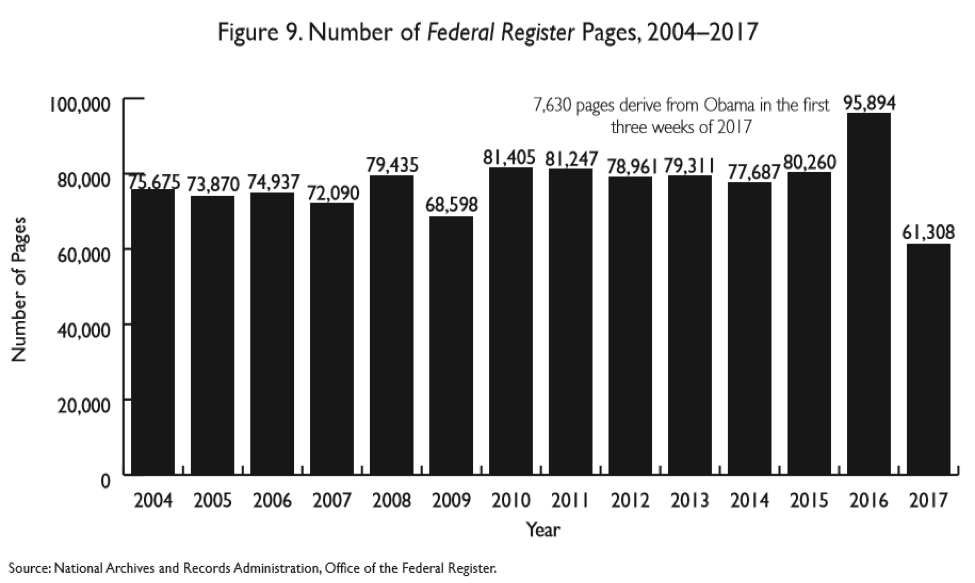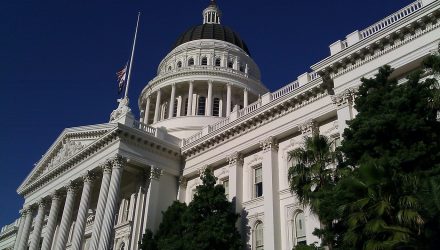How is it That Unelected Politicians are Crafting the Laws of Our Nation?
By J. Richard Fredericks, Main Management
Many believe that some of the functions of Congress and/or our political system are broken. We provide what we believe is a glaring example of that below.
Our example is how the Washington DC regulatory machinery bogs down our economy. Every year, the Competitive Enterprise Institute (CEI) puts out a report called “10,000 Commandments”. This year marked the 25th annual edition of that effort. The report focuses on the hidden costs of regulation in our country in great detail. They conclude that the costs to the economy amount to just under $2 Trillion per year, which represents an annual, hidden tax of nearly $15,000 per US household. At this time of year, when everyone is keenly focused on the taxes that they are paying, it is interesting to note that the regulatory costs identified by CEI are equivalent to all of the estimated $1.88 Trillion the IRS collected in both individual and corporate income taxes in 2017.
As a campaign promise, President Trump vowed to reduce our regulatory morass and cut regulations. For each new regulation, he wanted to eliminate two. To that end, Trump signed an Executive Order 13771 (“Reducing Regulation and Controlling Regulatory Costs”) to implement a one-in, two-out policy for federal regulations. Trump’s aim was to slow down the flow of regulations and reduce red tape. By his reckoning, he has accomplished that goal, and much more, in his first year as President. He asserts that the numbers amounted to a reduction of 22 regulations in 2017 for every new one that was put into place.
One measure that some use to determine success in reducing ‘red tape’ is to look at the number of pages in the Federal Register. In 2017, the Federal Register contained 61,308 pages, the lowest total since 1993, and 36% lower than the 95,894 pages in the last year of the Obama Presidency.
![]()

Much to our chagrin, however, is the fact that Congress delegates way too much power to unelected agency personnel to do the very job they are sent to Washington to do themselves. Regulatory agencies don’t answer to voters, yet they are the ones who are writing the laws, as Congress seems unwilling to take responsibility for the lawmaking themselves. We believe the recent vote on the 2,232-page bill to approve the current $1.3 Trillion Spending Bill is prima facie evidence of our theory since those in Congress had less than 24 hours to see what was in the bill and vote on it. It was the staff that wrote the bill – the same process that results in agency generated regulations that creep into and have an impact on our everyday life.
Power in Washington DC is always a function of size. Importance is measured by the size of one’s organization – the budget, the number of employees, and even the import of the regulatory process it controls. It is the ultimate turf battle. One problem is the perverse logic that has taken over the town. Because the budget deficits are so large, Congress is loath to be tied to any bill that would add more ‘red ink’. Consequently, they look to the agencies to put rules and regulations in place that force the private sector to follow and do what Congress ultimately wants anyway even though Congress has not explicitly passed a law.

